Interview with Elina Talvensaari: “Things have meaning and we can’t just ignore it”
Written by Marta Bałaga
Finnish director talks about her documentaries right before showing Lady Time in the Mid-Length Film Competition at IDFA – inspired by the previous owner of her Helsinki apartment, who following her passing left all her belongings behind.
Marta Bałaga: I think everyone can understand this feeling you are describing in Lady Time – coming into a brand new space only to find out you are surrounded by objects, which aren’t even yours. Was it difficult for you?
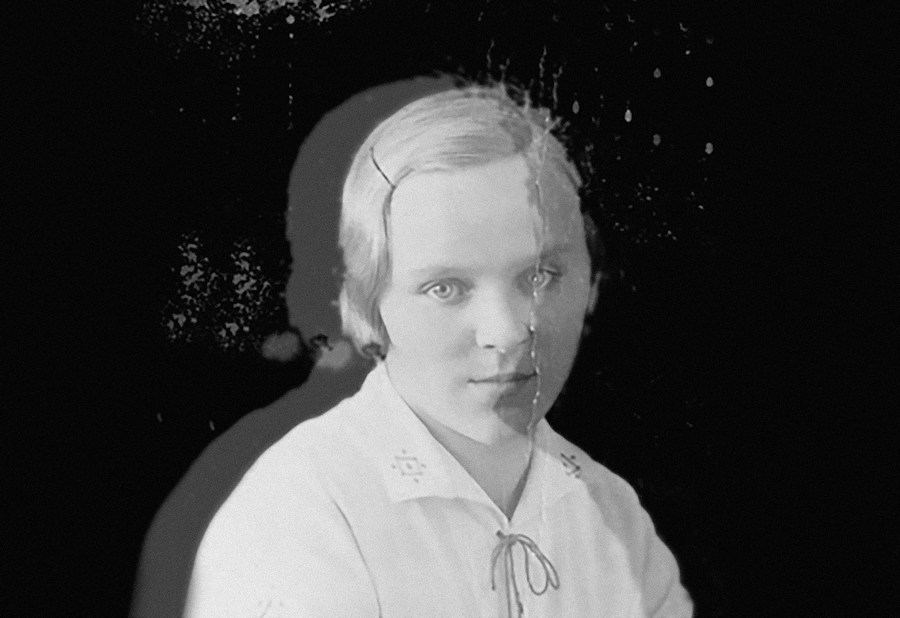 Elina Talvensaari: Every time I am talking about the film, it seems that everyone quickly connects with the idea. Which surprised me, to be perfectly honest. It’s also surprising how much I found out about [Sirkka-Liisa] in the end, like all these letters written by her and now stored in the Pielinen Museum. It was like: “Can this really happen?”
Elina Talvensaari: Every time I am talking about the film, it seems that everyone quickly connects with the idea. Which surprised me, to be perfectly honest. It’s also surprising how much I found out about [Sirkka-Liisa] in the end, like all these letters written by her and now stored in the Pielinen Museum. It was like: “Can this really happen?”
I would say it was scary just at the beginning, when we first moved there. It’s not in the film anymore, but there was this feeling of death, hovering all around us. Every singly object she left behind, it felt like it was touched by death. It was hard to be there. Even after we cleaned up and painted the walls, there was still the smell of her perfume in the air, invading our space. Once I got to “know” her a little bit more, it didn’t feel so strange anymore. And neither did her things.
When someone passes away, people feel very indifferent to their “worldly possessions” sometimes. We all know this picture: a family coming over with these huge plastic bags, and someone’s whole life disappearing inside right away.
Of course it happens. On one hand, these are just things, but somehow I don’t believe that – there is all this effort someone has put into saving them, you know? I find it hard to think about objects only as objects. I always think they carry something with them, some additional meaning.
I have been talking to some older people and they can easily relate to it – we have all these things, but what will happen to them in the end? They might still mean something to their children, but not to their grandchildren. They know it and yet there is nothing they, or anyone else for that matter, can do about it. You can’t just walk around, pointing at everything and explaining why it’s important to you.
Some people may think it’s wrong to become emotionally attached to material things, but I don’t think like that at all. We accumulate things, we need them and we create relationships with them. It’s not a question of whether it’s good or bad, but objects are a part of our world and we attach different meanings to them due to different reasons. Like a gift that you didn’t want but can’t throw away, as it still means that someone was thinking of you. Or that someone doesn’t seem to know you at all.
It’s almost as if your film stood in opposition to everything that’s being preached nowadays, like the whole Marie Kondo’s life-changing magic of tidying up. It’s a political statement!
I never thought of this film as political [laughter]. Of course it’s not like I am urging people to obsessively collect things all of a sudden, not with everything that’s going on environmentally. But things have meaning and we can’t just ignore it.
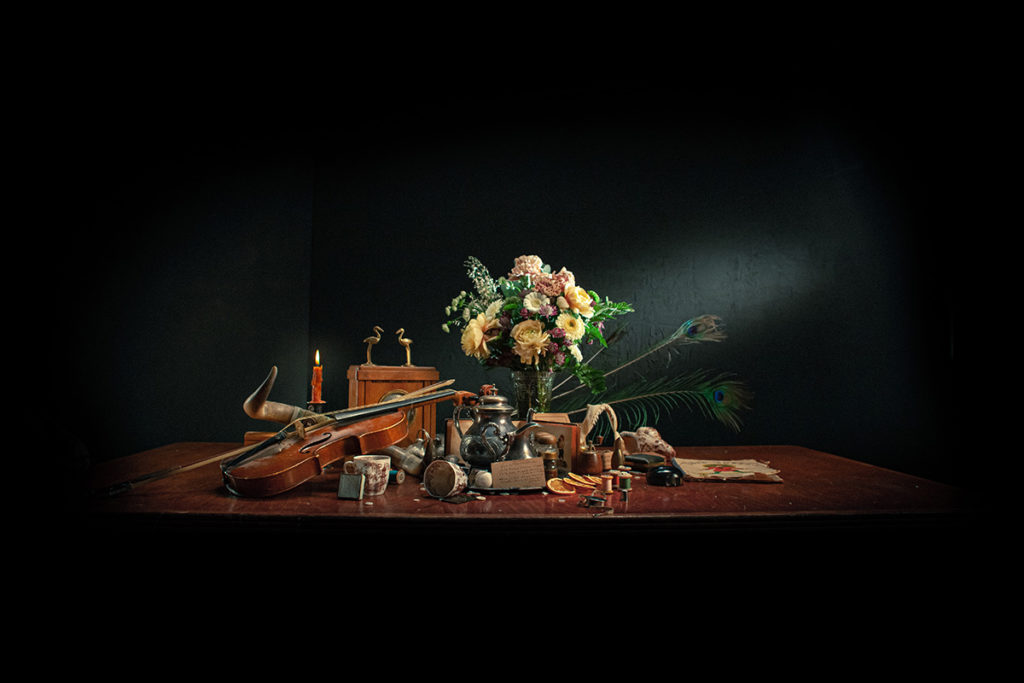 It took you years to make this movie; we even get to see your kids growing up. Would you say that at one point, it became a film about you too?
It took you years to make this movie; we even get to see your kids growing up. Would you say that at one point, it became a film about you too?
When we first moved there, it was already ages ago. It’s interesting, because when I first started to study in film school I am sure I used to say: “I will never make a film about myself.” I always found it so annoying, all these documentary directors appearing in their own films. “Why can’t they just stay on the other side of the camera?”
This time, I had to do it as the only main character has already passed away. She couldn’t be in the film, so there was really no other option. Otherwise it would be too hard for the audience, there would be no one to sympathise with and no one to follow. Once I assumed there is a justifiable reason for me to be there, it wasn’t that difficult. It was necessary.
Still, as you probably noticed, I am not really facing the camera. I was there as an object, you could say. Not so much as a person, although I am constantly present anyway thanks to the narration. It would be weird to hear someone talk about all these things and then not see her at all.
Your delivery is very soft, calm. Did you always wanted to include it? Because it’s true – in Lady Time, you are literally the only storyteller.
From the very beginning I realised there needed to be a narration and I was already shaping it during the screenwriting process. Of course afterwards it still changed hundreds of times. It’s another thing that stands against everything I have been saying as a student: “If you can’t tell a story without resorting to words, is it really worth making a film?” You live and learn.
I love how you keep referring to your younger, judgemental self. How did you even discover documentaries in the first place? And, yes, what were the ideas you originally had in your mind?
Before applying to film school I studied sociology, so I come from an academic background. I was so critical of everything. Not because you already know everything at this stage, but because you feel like it. I always loved “essay films” [self-reflective cinema that blurs the lines between reality and fiction] and when I started out, that’s what I thought I was going to make. Even with this film, I thought: “Oh, this is not going to be an essay film, it actually seems rather normal.”
At the end, its style is very close to how they tend to define them. It’s part of who I am as a filmmaker, of how I see the world. I used to hate all the “talking heads” films and the so-called “personal” documentaries. “Why don’t you make a film about something else than yourself?” – that used to be my take.
Of course it was.
Now, I think that film can be anything and it really depends on the story you want to tell. That’s how you choose your style. I am no longer that prejudiced. If what you are trying to do is all about being in the moment, then it doesn’t really matter if you shoot it with an iPhone or whatever. I would like to think that my horizons have opened up but then again, it’s something that should happen naturally when you grow up.
What has stayed with me, however, is that I have never viewed documentary film as a reportage, which I think a lot of people still do. There is a place for films like that and they are important, but it’s not cinema. And I am interested in cinema. Sometimes I really think there is not that much difference between fiction and documentary but I really want to support the idea that we have to make documentary films, first and foremost.
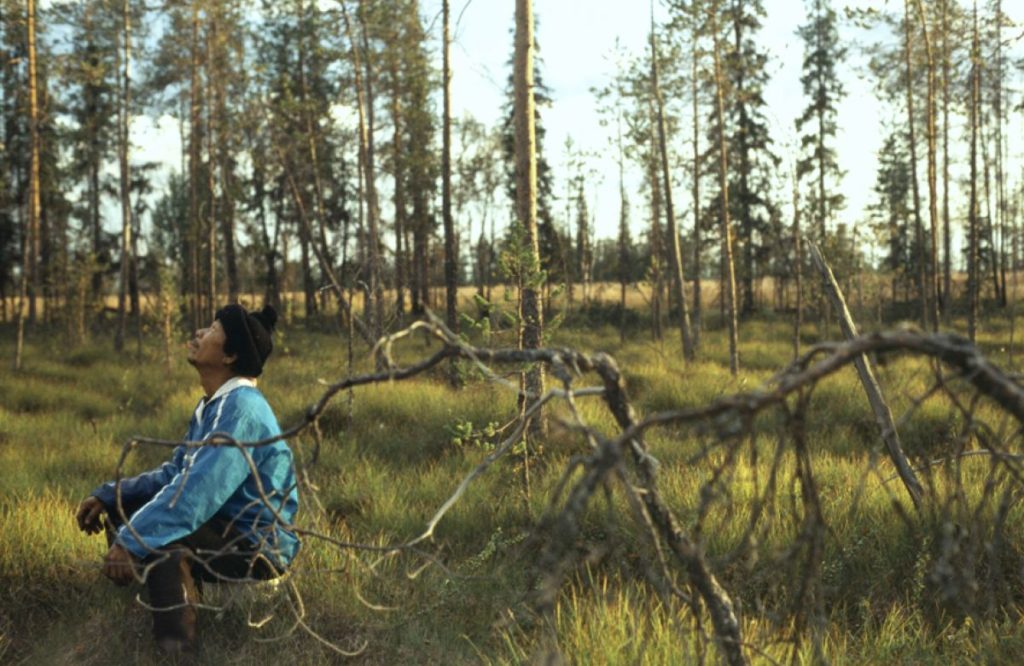 With award-winning How to Pick Berries, I can easily imagine this story being presented as one of these TV reportages with some social appeal, raising political questions. Which is not what you did there at all.
With award-winning How to Pick Berries, I can easily imagine this story being presented as one of these TV reportages with some social appeal, raising political questions. Which is not what you did there at all.
I really think that when you are making a film, most of the time you are just trying to convey some kind of atmosphere or a feeling. That’s what a film can do. Reportage can do a lot of things too, but if we are able to describe everything just by using rational sentences, then you might just as well write an article instead. Why make a film? Me, I need something that I can’t really solve just by using these rational tools. There needs to be some emotion, some ambivalence or contrasting thoughts I can’t quite pin down. Then I know it’s worth it.
You played with these expectations a little, with the title alone promising, well, some rather concrete instructions.
The title was inspired by [novelist] Julio Cortázar. He wrote these wonderful short stories on how to climb a staircase for example, where he very meticulously explains how you do it. And he makes it seem so strange and complicated! That was the idea for the film too – it’s the easiest thing in the world, picking berries. But once you look at all the inner conflicts and everything that’s involved, all the political and even global repercussions, it makes it seem so complicated.
My family is from the area where I shot. I have never lived there myself, but my mom had and at one point I started hearing all these stories coming from the locals. My mother told me how they think about foreigners coming over to work and I found it so tragic but also quite funny. They really thought they are the ones treated badly and it made me think that maybe there is a film in there somewhere. Although it turned out to be a long journey as well, because what can I say? You start with some ideas and then, if you are lucky, they end up in the actual movie. At least in some form.
It was funny, because during the Q&As for that film outside of Finland, many people asked: “How did you get them to talk?” They thought that what they say is so…
…politically incorrect?
Yes. But the truth is, they were really happy to talk – they feel like nobody listens to them. Of course, you always have to be sensitive. You can’t make a film about people if you are not willing to understand them and I think I did, although my own point of view might be very different. I thought this film really delivered what I wanted it to. Sure, what they are saying is not taking into account the Thai workers, but they are talking from their own point of view. You believe that.
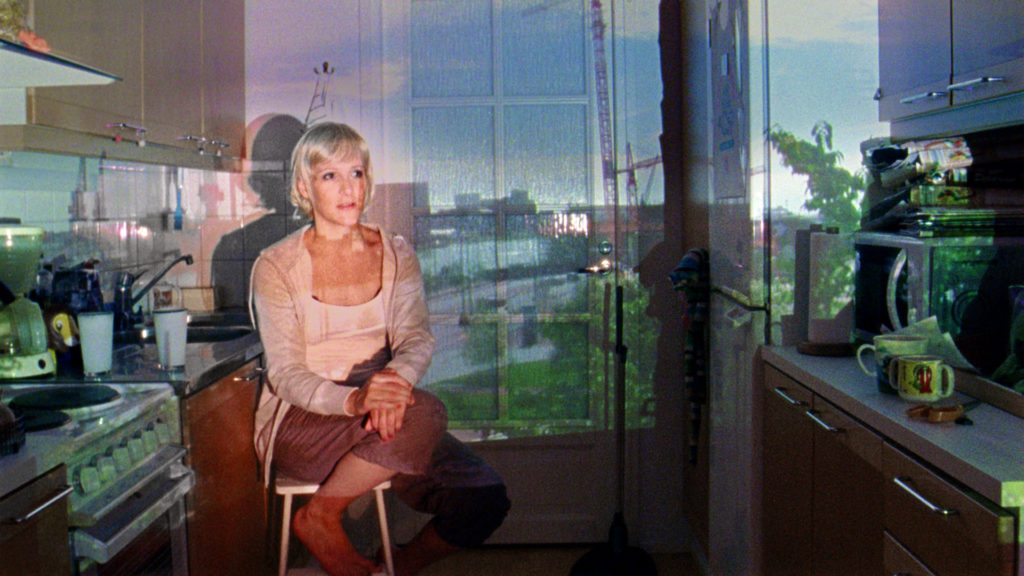 You seem to be interested in people that nobody listens to, or the ones that could never share their stories before.
You seem to be interested in people that nobody listens to, or the ones that could never share their stories before.
Here we go again – before going to film school, there were all these exams and everyone was saying the same thing: “I want to give voice to those who can’t speak for themselves.” And I was just sighing somewhere, annoyed [laughter]. But maybe deep inside I really wanted it too?
It’s a problem I have to face all the time with my filmmaking. Sometimes I think that now that I have a chance to make a film, maybe I should use it for something important? But it’s not a good reason to make art. I struggle with this all the time. The idea of political films appeals to me in some ways but so often they end up as a tool of activism, not art. There is a difference. It’s important, I know, but for me art is just different. As I said before: I want to make films.
But with Purity and Danger for example, I actually wanted people to hear what these characters were saying, maybe because it was such a transformative experience for me as well. I just wanted to recreate this kind of conversation for the audience.
It’s funny to think how you took the thing you hate the most, the “talking heads” structure, and found a way to work around it in this film.
I guess I was able to do it because I couldn’t really show the real sex workers. It was too dangerous for them, obviously. So I used all these traditional methods to make it easier for the audience. They could recognise something, as at least the set up seems vaguely familiar. It was a very interesting process and I wrote my master’s thesis about it.
It’s a strange film in terms of genre and it wasn’t that successful. I still don’t know why. Those who saw it at least found it interesting, but it never really travelled that much. We did it in such a particular way and it doesn’t really have a story, but it was more about me going into the world, discovering things I know nothing about. I am not sure if it was activism or not, but it was an important experience for me anyway.
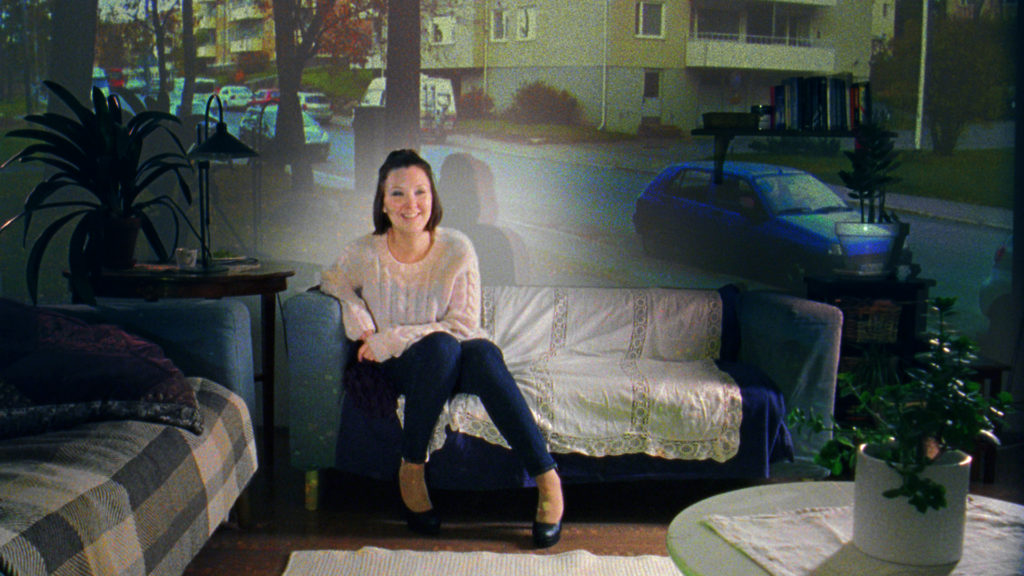 Maybe some rejected it once they discovered the women you show in the film are not the ones you actually talked to?
Maybe some rejected it once they discovered the women you show in the film are not the ones you actually talked to?
I thought that if we would somehow convince these women to show their face, that’s what everyone would concentrate on instead. By using an actor, you create distance and you actually listen to what they have to say. Without sensationalising it too much or having people wonder if she is safe and if it’s really ok for her to open up like this. But yes, I can see how some could feel betrayed.
This idea to project the outside world onto them was one of these things I come up with sometimes and later on, when someone asks why, I don’t know what to say. I just try to rationalise it. So I don’t really know how it got there, but how I tend to explain it is that because we shot in such small, confined spaces, imitating the real places where we did the interviews, I wanted to bring the outside world there as well. To show how all this unravels in public space, too – not just some dark, hidden world. I found it visually interesting.
What drew you to that somewhat controversial subject? We all have some theories about sex work I guess, some of which clearly don’t work – as the women in your film openly state. How did it start for you?
I started researching it after How to Pick Berries. At first, I was very interested in Thai massage places – I saw it as another example of how foreign workforce can be mistreated. But it was too hard to gain some insight into that world, I didn’t speak the language and people had no trust in me. I am Finnish, so most of the time they suspected I would report them or something. It was really complicated and I was still a student at the time, but ultimately it brought me to Finnish sex workers.
Everything they told me really changed my views on this subject. I think that maybe I couldn’t really make it clear in the film, unfortunately, but it really reflects how we see women and what their role is in our society. The way we tend to think about sex workers, we either look down on them or we pity them. Which is very connected to that patriarchal view. I am aware that there are terrible things happening within that field, I am not that naïve. But a lot of problems come from how we perceive these women, making it so hard for them to even ask for help.
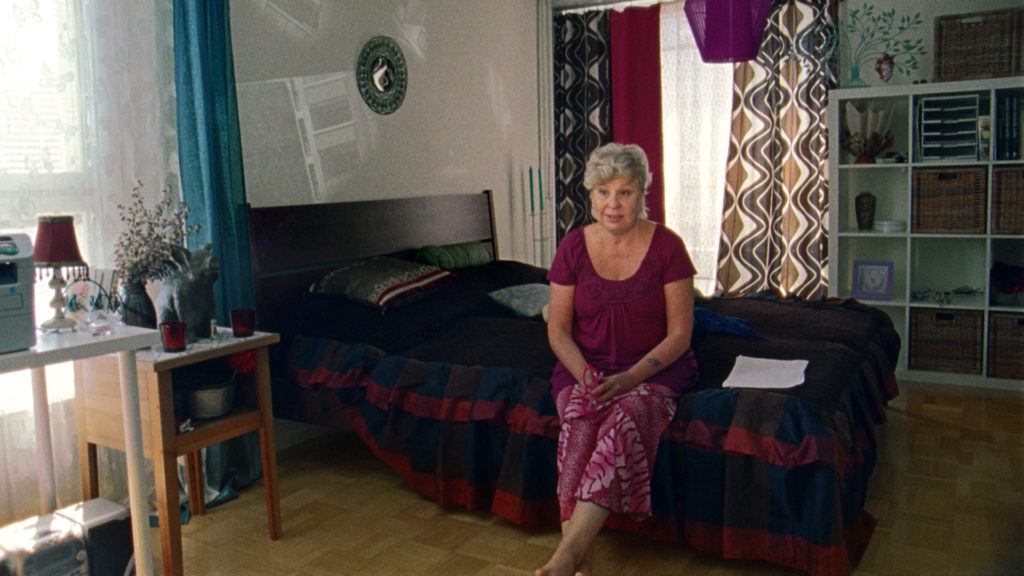 You chose women for whom it’s a choice, and a surprisingly practical one. I remember this sentence when one of them says she is not selling herself – she is selling a service.
You chose women for whom it’s a choice, and a surprisingly practical one. I remember this sentence when one of them says she is not selling herself – she is selling a service.
We tend to think that for sex workers, it’s their whole identity. We don’t take into account that it might be just a job. It’s a job that’s very peculiar, true, and one that might call for a lot of support. Support they don’t get, because officially it doesn’t exist.
I was being interviewed about the film on the radio once, and the man who interviewed me used that expression: “They sell themselves.” Which is like the first lesson you learn by watching this film, that by saying something like this you are reducing a whole person to this one aspect of their life. As if having sex would automatically mean it always needs to touch your inner self. I don’t think we think about men in those terms. It only applies to women it seems.
This need to discover something you don’t actually know seems to be crucial. Especially given how long it takes to get these films made.
It takes years, so I would never allow myself to make a film about a subject that mildly interests me. It needs to be difficult and emotionally complicated, because you can’t make a good film if you are only half-heartedly invested in the story. You need to feel these emotions to make others feel them as well. With Lady Time, at the beginning I really thought it would be a 5-minute-long short. And then, about six months ago, we realised that all these questions we are trying to pose concern everybody.
I guess that’s why people like Errol Morris are not that important to me. I recognise their place in history but it’s just not something I love. I really appreciate the filmmakers who are present in somebody’s life for a while and manage to catch all these incredible moments, like Simon Lereng Wilmont in The Distant Barking of Dogs for example. It’s a very special skill and I guess it works best if you film by yourself. I don’t do it, so at least for now, it’s not the kind of film I will be making anytime soon.
I love Agnès Varda, Anja Salomonowich and Gianfranco Rosi but actually, a lot of inspiration for me comes from fiction, from Andrea Arnold, Alice Rohrwacher or Sofia Coppola. And, even though I don’t think you can see it in my films yet, the filmmaker that inspires me the most is David Lynch. I don’t actually like to say it aloud, because it sounds weird. The thing is, he is really playing with our subconscious and I find it fascinating. We are always trying to rationalise everything and I love it when I can’t, when I am suddenly thinking about a part of me I didn’t even know existed. It’s a fun feeling.
